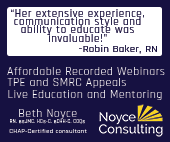by Elizabeth E Hogue, Esq.,
After a hospitalized patient suffered a severe choking incident and was placed on life support, his family faced a difficult decision in response to a telephone call from the hospital. They were asked if they wanted to remove life support. The family told the hospital that they did. The hospital subsequently removed life support and the patient passed away. Then came something that no one expected: the patient who was allegedly deceased telephoned his family!
The mix-up started with a call to 911. Medics responded to a call about a choking incident involving a piece of steak. The man who choked was not breathing and was unconscious when they arrived. Somewhere along the line, the patient was misidentified and treated as another patient.

Parents that were called to make life-ending decision for wrong person
The family of the living patient called non-emergency police services to notify authorities that the patient was not, in fact, deceased. The Medical Examiner’s Office retrieved the body from the funeral home, conducted an external examination, and used fingerprints to confirm the deceased patient’s identity. In a gross understatement, a member of the patient’s family said, “Somebody messed up.”
Although the consequences of decision-making by so-called “substitute decision-makers” are not usually so dire, the fact remains that providers and practitioners are obligated to seek informed consent from those authorized to give it when patients cannot consent for themselves.
Here are some questions that providers frequently ask about substitute consent:
If patients cannot consent, who can consent on their behalf?
The answer to this question varies depending on the laws of the state in which patients reside. Consent may be provided on behalf of incapacitated adults by:
- An attorney-in-fact, i.e., someone who has authority under a durable power of attorney
- Individuals authorized to consent under state substitute consent statutes
- Guardians or conservators of the person
- Courts
How old must patients be in order to be able to give valid informed consent?
Generally, patients must have reached the age of adulthood before they can give informed consent. The age at which individuals become adults, as opposed to minors, is defined by state law, so the age of adulthood varies from state to state. Practitioners who provide services in multiple states must take this fact into account when obtaining consent. When minors are unable to consent, the general rule is that their parents may give substitute consent on their behalf.
Are there any exceptions to this rule?
Yes. Patients who are not adults, but who seek certain types of care, such as treatment for sexually transmitted diseases, or who are “emancipated” may consent on their own behalf depending on the law in the state in which the patient resides.
What evidence of valid informed consent should practitioners obtain?
Providers may:
- Ask patients to sign a consent form
- Document consent in patients’ charts with or without patients’ signatures on the documentation
- Record consent
- Video the consent process
- Give patients a short written quiz on the material provided and, if patients answer the questions correctly, put a copy in patients’ charts
- Utilize any other credible forms of evidence of consent
The above case certainly illustrates the need to make sure that consent is obtained from appropriate givers of substitute consent and to document their authority.
©2024 Elizabeth E. Hogue, Esq. All rights reserved.
No portion of this material may be reproduced in any form without the advance written permission of the author.



